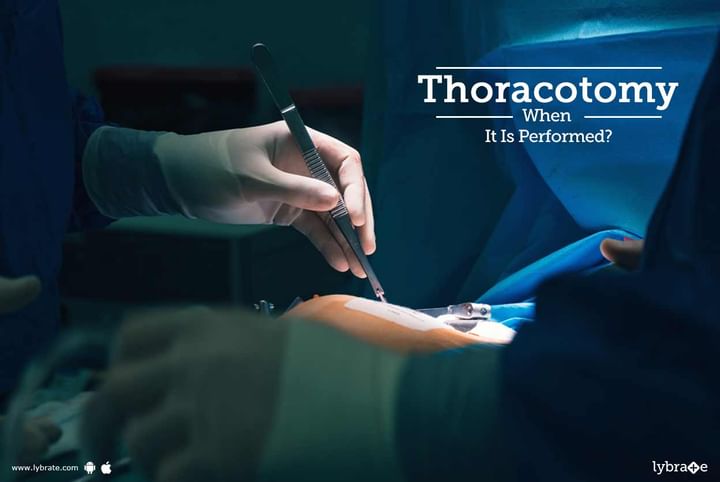Thoracotomy - When It Is Performed?
The chest cavity within the ribs is a very vital area of your body. There are multiple vital organs within this area and if there are any problems with any of these, then one of the ways to perform surgery in this area is with the help of thoracotomy.
What is thoracotomy?
Thoracotomy is the opening up of the chest cavity for the doctors to allow access to the vital organs within the region such as:
- Heart
- Lungs
- Throat
- Aorta
- Diaphragm
In this procedure, the doctors make a medium to large incision on the side of the chest which may extend much further up the back depending on how far the doctor needs access too. However, in certain cases, the doctors may extend the incision to the front of the chest and even remove ribs to allow access. Thoracotomy is a major and invasive surgery. It is a fairly common surgery but carries risks because of it being such an invasive surgery.
When is thoracotomy performed?
Some of the indications where thoracotomy is performed would be –
- To check for lung diseases
- To remove non-cancerous or benign tumors
- To treat infections of the chest cavity also known as empyema
- To remove blood from the lungs in a condition known as Hemothorax
- Thoracotomy is also performed as an emergency procedure to remove fluid from the chest cavity
- One of the most common cases wherein this procedure is performed is during pulmonary embolism or a blood clot within the lungs
- Treatment of wounds sustained from knife stabbings or gunshot wounds
- As a part of treatment for lung cancer
Risks of Thoracotomy
- Since thoracotomy is more invasive than other procedures, it tends to carry more risks as well. Some of the risks are mentioned as follows -
- Infection of the wound, as is the case with any surgery
- Excessive bleeding during the surgery
- Development of Pneumonia due to the lungs becoming inflamed after the surgery
- If the heart surgery isn’t successful, then it might lead to further worsening of the problems.
- Further chances of blood clots; especially deep vein thrombosis, wherein a clot in the leg moves up to the lungs causing serious health problems.
- Leakage of air through the walls of the lungs that results in longer healing time and thus warrants longer hospital stay.
Aftercare
Aftercare is fairly complicated with this procedure and will take some time to heal completely.
- In most cases, tubes to carry out fluids, as well as IV Drips, may also be connected to you.
- You will also be given anti-pain and anti-inflammatory medications in order to deal with post-surgery recovery.
- You will also be recommended breathing and movement exercises to slowly improve your tolerance and bring back normalcy in movement.
- You will also need to be careful while touching the area so as not to infect it.
- Ensure your hands are thoroughly washed and clean when you touch them. Also, ensure that dressings are changed regularly with the appropriate precautions as prescribed by the doctors.
In case you have a concern or query you can always consult an expert & get answers to your questions!



+1.svg)
